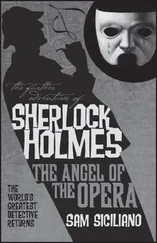Ahern, Jerry - The Web
Здесь есть возможность читать онлайн «Ahern, Jerry - The Web» весь текст электронной книги совершенно бесплатно (целиком полную версию без сокращений). В некоторых случаях можно слушать аудио, скачать через торрент в формате fb2 и присутствует краткое содержание. Жанр: Старинная литература, на английском языке. Описание произведения, (предисловие) а так же отзывы посетителей доступны на портале библиотеки ЛибКат.
- Название:The Web
- Автор:
- Жанр:
- Год:неизвестен
- ISBN:нет данных
- Рейтинг книги:4 / 5. Голосов: 1
-
Избранное:Добавить в избранное
- Отзывы:
-
Ваша оценка:
- 80
- 1
- 2
- 3
- 4
- 5
The Web: краткое содержание, описание и аннотация
Предлагаем к чтению аннотацию, описание, краткое содержание или предисловие (зависит от того, что написал сам автор книги «The Web»). Если вы не нашли необходимую информацию о книге — напишите в комментариях, мы постараемся отыскать её.
The Web — читать онлайн бесплатно полную книгу (весь текст) целиком
Ниже представлен текст книги, разбитый по страницам. Система сохранения места последней прочитанной страницы, позволяет с удобством читать онлайн бесплатно книгу «The Web», без необходимости каждый раз заново искать на чём Вы остановились. Поставьте закладку, и сможете в любой момент перейти на страницу, на которой закончили чтение.
Интервал:
Закладка:
sian or whatever—I don't even have the words for it. Maybe Paul would. But the three of us—we've come this far together. And that means something."
Rourke checked the oxygen. The cowl flap switches were open. He set the fuel selector valves to "main," the induction air system to "filtered."
Visually, he surveyed the circuit breakers and switches; there wasn't time for a full check. He flipped the battery switch to "on."
Glancing at the main and auxiliary fuel indicators, he started throttling open, the prop controls at low pitch. He adjusted the mixture controls—full rich. He checked the auxiliary fuel pump; it was registering high. He switched it off.
Glancing out the cockpit storm window again, he hit the magneto/start switch.
"Paul—up here with a gun!"
Already, Rourke was exercising the props, watching the rpms build. He throttled out, checked the magneto variances, throttled again. "Little late to ask—the wheel chocks gone?"
"Yes." She smiled, laughing for an instant.
Rourke nodded, feathering the props, the mob less than a hundred yards away now, the Chevy pickup closing fast. There was no glass in its windshield, and men, packed in its truck bed, were firing rifles and shotguns.
"Paul!"
"Right here."
Rourke glanced behind him; the younger man held Rourke's CAR-in his right hand; his left was pushing the wire-rimmed glasses back from the bridge of his nose.
"Put a few shots out the storm window," Rourke ordered. Then, concentrating on getting airborne, he
ignored the mob. Trim tabs, flaps—he set them for takeoff.
He released the parking brake. "Let's get the hell out of here," Rourke almost whispered.
"Brace )ourself Paul—and keep shooting." For the last ten seconds, pieces of hot brass had pelted his neck and shoulders—Rubenstein firing the Colt assault rifle toward the mob. The younger man stood almost directly behind him.
Rourke glanced at the oil temperature, then rasped half to himself, "Full throttle—God help us."
He checked the fuel altitude setting as he released the brake. The aircraft was already accelerating. "Buckle up, Paul," Rourke ordered. More of the hot brass pelted him, then suddenly stopped. Above the roaring of the engines there were sounds now of gunfire from the field, of projectiles pinging against the aircraft fuselage.
"What if they hit something?" Rubenstein called out.
"Then we maybe die," Rourke answered emotionlessly. He checked his speed; through the cockpit windshield the runway was blurring under him now. The Chevy still came, gunfire pouring from it, the mob suddenly far behind.
The pickup was closing fast.
Rourke checked his speed—not quite airspeed yet. The far chain-link fence at the end of the airfield was coming up—too fast. More gunfire; the pilot's side window spiderwebbed beside Rourke's head as a bullet impacted against the glass.
And Rubenstein was firing again as well, having ignored Rourke's admonition to strap in. The Chevy swerved; one of the men in the truck bed fell out onto the runway surface. The gunfire was heavier now, sparks
flying as Rubenstein's . slugs hammered against the pickup truck's body.
"Hang on!" Rourke worked the throttles to maximum, starting to pull up on the controls—a hundred yards, fifty yards, twenty-five yards, the nose starting up. Rourke punched the landing-gear-retraction switch, and as they cleared the fence top, the pelting of hot brass against his neck subsided, Rubenstein's gunfire having ceased.
"Thank God." Rubenstein sighed.
"Hmmm." Rourke worked the controls, opening his cow] flaps, trying to climb, gunfire still echoing from below and behind them.
He checked his airspeed—not good enough—then began playing the cowl flaps and the fuel flow. The airspeed was rising. As Rourke banked the aircraft hard to port, Natalia leaned half out of her seat, across his right shoulder, Rubenstein to his left. The Chevy, now far below them, had stopped. The men with rifles and shotguns in the pickup's bed were now minuscule specks, more a curiosity than a threat.
"Can I breathe now?" Paul Rubenstein asked.
Smiling, Rourke checked the oxygen system on the control panel, then nodded. "Yeah." Rourke decided to breathe, too. . . .
The controls vibrated under Rourke s hands as he sat a)one in the cockpit. Natalia had gone ah with Paul, to help him resecure some of the gear that had jarred loose during the overly rapid takeoff. The airfield tower had given him the weather—generally good, moderate winds, perhaps a few thunderheads, but at low elevations and unlikely to be encountered.
Rourke looked below the craft now, its shadow stark and black against the empti
ness that he saw. That expanse of wasteland had once been the Mississippi Delta region. Now, like the rest of the Mississippi valley from where New Orleans had been to its farthest extent north, the ground was a radioactive desert.
The Night of the War . . . Rourke could not forget it, and at last lighting the small dark tobacco cigar that he'd had clenched in his teeth for nearly an hour, he thought more about it. The anger of the men and women in the mob back at the airfield, even the reluctance of Reed to risk an American life to save a Russian life, no matter how valuable, how good—it had all started then, on the Night of the War.
The global fencing—the saber rattling—had ended long before anyone had realized and the nuclear weapons had been unsheathed and ready. The death ... all of the death in that one night, millions of lives lost. The pounding of nuclear weapons, which here, below him, had produced an irradiated vastness that would be uninhabitable for perhaps as long as a quarter-million years, had struck along the San Andreas fault line and brought about the feared megaquakes—but far worse than anyone, save the most wild speculator, had ever imagined. Much of California and the West Coast had fallen into the sea—more millions of deaths. The Soviet Army—the Soviet Union itself—was nearly as crippled as was what had been the United States. The invading Soviet Army, headquartered in neutron-bombed Chicago, had set up outposts in surviving major American cities and industrial and agricultural regions, outposts that not only contended with the growing wave of American resistance, but with the Brigand problem. Rourke felt a smile cross his lips as he exhaled the gray smoke of his cigar. Some
thing in common with the self-styled conquerors—the Brigand warfare, the pillaging, the slaughters.
For it was after the war that both the best and worst of humanity had risen to the fore. The best—Paul, certainly. The young Jewish New Yorker had never ridden anything more challenging than a desk, never fought anything tougher than an editorial deadline. Now, in the few short weeks since the world had forever changed, Rubenstein had forever changed as well. Tough, good with a gun, as at home on a motorcycle as he had been in a desk chair. Even in the short period of time that had elapsed, Rourke had noted the definition of his musculature, and the different set to the eyes he continuously shielded behind wire-rimmed glasses. The wonder, the excitement, were all there as they had been from the first with each new challenge; but there was something else— a pride, a determination derived just from having survived, from having fought, from having surmounted obstacles. In those few short weeks, Rubenstein had grown to be the best friend Rourke felt he had ever had— like a brother, Rourke thought, feeling himself smile again. An only child, he had never been blessed with a natural brother. But now at least he had one.
And Natalia—the magic of her eyes, the beauty that he would have felt hopelessly inadequate to describe had the need arisen to do so. Rourke had first met her before the war—a brief, chance meeting in Latin America when she had worked with her now-dead husband, Vladmir Karamat sov. Rourke had been a CIA covert operations officer; Karamatsov had been the same thing—but for KGB, the Soviet Committee for State Security. And Natalia had been Karamatsov's agent. Then, after the war, there was the staggering coincidence of finding her,
Читать дальшеИнтервал:
Закладка:
Похожие книги на «The Web»
Представляем Вашему вниманию похожие книги на «The Web» списком для выбора. Мы отобрали схожую по названию и смыслу литературу в надежде предоставить читателям больше вариантов отыскать новые, интересные, ещё непрочитанные произведения.
Обсуждение, отзывы о книге «The Web» и просто собственные мнения читателей. Оставьте ваши комментарии, напишите, что Вы думаете о произведении, его смысле или главных героях. Укажите что конкретно понравилось, а что нет, и почему Вы так считаете.







